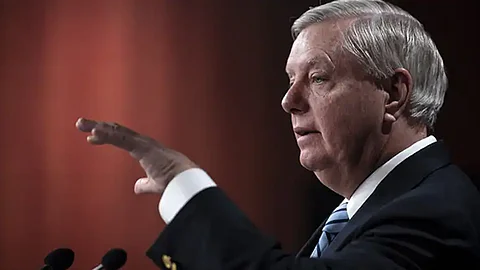

U.S. Senator Lindsey Graham has issued a strong warning that President Donald Trump's administration will impose severe tariffs—potentially reaching 100%—on countries that continue to buy Russian oil, with a particular focus on India, China, and Brazil. Graham argued that these nations are significantly supporting Russia's war effort in Ukraine by purchasing nearly 80% of its crude oil exports, which he characterized as "keeping Putin's war machine going."
Graham further intensified the rhetoric by labeling trade with Russia as "blood money" and openly threatened economic consequences, stating, "If you keep buying cheap Russian oil to allow this war to continue, we're going to tear up the hell out of you, and we're going to crush your economy." Previously, he proposed legislative action that would mandate tariffs as high as 500% on goods from nations that persist in trading with Russia.
The senator's statements reflect growing impatience in Washington over Moscow's refusal to end its military operations in Ukraine. Graham accused Russian President Vladimir Putin of seeking to recreate the former Soviet Union, violating the assurances made to Ukraine in the 1990s regarding its sovereignty after giving up nuclear weapons.
Trump Administration and NATO's Position
President Trump, who had previously promised a swift end to the war, has now shifted to a stance of escalating pressure. With the conflict worsening and Russian attacks on Ukrainian cities increasing, Trump announced new weapon shipments to Ukraine and threatened “biting” secondary tariffs of 100% on buyers of Russian oil, unless a peace deal is reached within 50 days.
NATO Secretary General Mark Rutte echoed the U.S. position by warning of potential secondary sanctions against India, China, and Brazil. Rutte urged these countries to leverage their ties to Putin and press for serious peace negotiations, stating that failure to do so would "slam back on Brazil, on India and on China in a massive way."
India responded firmly to these external pressures, emphasizing national priorities and questioning the potential for “double standards” in applying such sanctions. The Indian Foreign Ministry stated that securing the country's energy needs takes precedence and that decision-making would continue to be guided by available market offerings and ongoing global conditions. The Ministry reiterated its right to pursue its own interests and warned against inequitable treatment or selective enforcement of sanctions.
"In this endeavour, we are guided by what is on offer in the markets and by prevailing global circumstances. We would particularly caution against any double standards on the matter," said an official spokesperson.